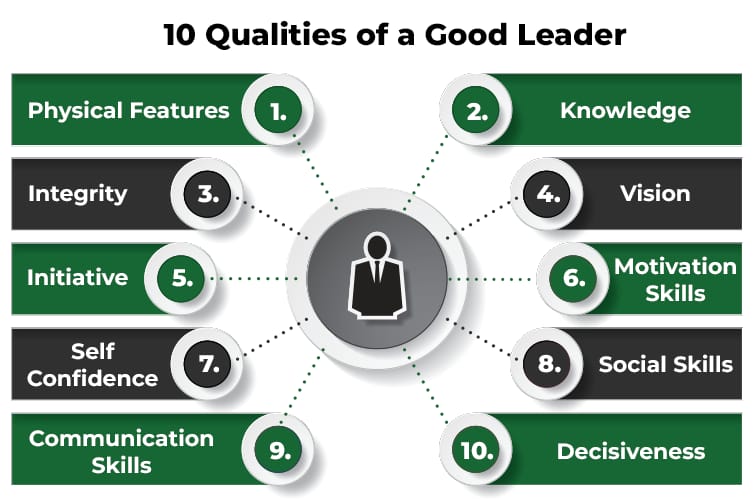Understanding Charisma: An In-Depth Exploration
Charisma, often described as a magnetic charm or appeal, is a complex trait that plays a pivotal role in leadership, communication, and social interactions. This quality enables individuals to draw others toward them, foster admiration, and inspire trust and allegiance. While charisma can appear innate, it is also a skill that can be developed with conscious effort.
In this essay, we will delve into the origins and components of charisma, explore its impact on leadership and relationships, examine whether it is an innate gift or a learned skill, and offer practical tips for developing charisma in personal and professional contexts.

Origins and Definition of Charisma
The term “charisma” originates from the Greek word kharisma, meaning “favor” or “gift of grace.” In its early usage, charisma referred to a divine quality bestowed upon individuals, allowing them to inspire devotion and awe. Over time, the term evolved to encompass secular contexts, describing a compelling attractiveness or charm that enables one to influence others.
Charisma, as defined by the American Dictionary, is “the ability to attract the attention and admiration of others, and to be seen as a leader.” This definition underscores the dual aspects of charisma: social magnetism and perceived leadership ability. Charismatic individuals often have a unique blend of confidence, authenticity, emotional intelligence, and communication skills that set them apart in social or professional settings.

Components of Charisma
Confidence
Confidence is a cornerstone of charisma. Charismatic individuals exude self-assurance without coming across as arrogant. Their belief in themselves and their abilities inspires trust and admiration in others. Confidence is often expressed through body language, tone of voice, and decisive actions.
Authenticity
Authenticity refers to being genuine and true to oneself. Charismatic individuals are often admired for their sincerity and integrity. They are not afraid to show vulnerability or admit mistakes, which makes them relatable and trustworthy.
Emotional Intelligence
Emotional intelligence, or the ability to understand and manage one’s emotions and empathize with others, is another key component of charisma. Charismatic people are adept at reading social cues, responding empathetically, and fostering meaningful connections.
Communication Skills
Effective communication is vital for charisma. This includes not only articulate speech but also active listening and non-verbal communication, such as maintaining eye contact and using open body language. Charismatic communicators know how to engage their audience, tell compelling stories, and convey ideas with enthusiasm.
Vision and Purpose
Charismatic individuals often have a clear vision or purpose that inspires others. Their passion and determination create a sense of direction and motivate people to align with their goals.

The Role of Charisma in Leadership
Charisma has long been associated with effective leadership. History is replete with examples of charismatic leaders who have inspired movements, motivated teams, and brought about significant change. Leaders like Martin Luther King Jr., Mahatma Gandhi, and John F. Kennedy are often cited as examples of individuals whose charisma captivated and rallied people.
- Inspiration and Motivation
Charismatic leaders have the ability to inspire and motivate others by articulating a compelling vision. They connect with people on an emotional level, instilling a sense of purpose and belonging. - Building Trust
Charisma helps leaders build trust and rapport with their teams. By displaying authenticity, empathy, and confidence, they create an environment where people feel valued and understood. - Influence and Persuasion
Charismatic leaders excel at persuading others to embrace new ideas or take action. Their passion and communication skills enable them to effectively convey their message and rally support.

Is Charisma Innate or Learned?
The debate over whether charisma is an innate gift or a learned skill has persisted for decades. While some individuals seem naturally charismatic, research suggests that charisma can be cultivated with practice and self-awareness.
Innate Charisma
Some individuals are naturally predisposed to charisma due to their personality traits, such as extroversion, optimism, or high emotional intelligence. These traits make it easier for them to connect with others and exude charm.
Learned Charisma
For those not naturally charismatic, the good news is that charisma can be developed. Studies have shown that practicing specific behaviors, such as improving communication skills, increasing self-confidence, and developing empathy, can enhance one’s charisma over time.
Developing Charisma: Practical Tips
Enhance Communication Skills
Speak Clearly and Confidently: Practice speaking with clarity and confidence, avoiding filler words or hesitations.
Active Listening: Show genuine interest in others by listening attentively and responding thoughtfully.
Non-Verbal Cues: Use open body language, maintain eye contact, and smile to create a positive impression.
Build Self-Confidence
Positive Self-Talk: Replace self-doubt with affirmations and focus on your strengths.
Set and Achieve Goals: Accomplishing goals, even small ones, boosts self-confidence.
Practice Public Speaking: Joining organizations like Toastmasters can help improve confidence in addressing groups.
Develop Emotional Intelligence
Empathy: Strive to understand others’ perspectives and emotions.
Self-Awareness: Reflect on your emotions and how they influence your behavior.
Manage Emotions: Learn to stay composed under pressure and respond calmly in challenging situations.
Cultivate Authenticity
Be Genuine: Align your actions and words with your values and beliefs.
Show Vulnerability: Don’t be afraid to admit mistakes or seek help when needed.
Consistency: Build trust by being consistent in your actions and behavior.
Articulate a Vision
Define Your Purpose: Clarify your goals and communicate them passionately.
Inspire Others: Use storytelling to share your vision and its impact.
Lead by Example: Demonstrate commitment to your vision through your actions.

The Impact of Charisma on Relationships
Charisma is not limited to leadership; it also plays a significant role in personal and professional relationships. Charismatic individuals often enjoy stronger connections, as their charm and empathy make others feel valued and understood.
In Personal Relationships
Charisma fosters deeper connections by encouraging open communication and mutual respect. It helps individuals build trust, resolve conflicts amicably, and create a supportive environment.
In Professional Relationships
In the workplace, charisma can enhance collaboration, teamwork, and networking. Charismatic employees or managers often have a positive influence on workplace morale and productivity.
The Dark Side of Charisma
While charisma is generally viewed as a positive trait, it can also have a darker side. In some cases, charismatic individuals may use their influence to manipulate or exploit others. History has seen examples of leaders who, despite their charm, led followers down destructive paths.
To avoid the pitfalls of charisma, it is essential to pair this trait with ethical behavior, integrity, and accountability.
https://www.linkedin.com/in/satish-kakri-17224417/
https://nimblefoundation.org/
https://nimblefoundation.org/feedback.html
https://nimblefoundation.org/our-clients.html
Thanks for reading.